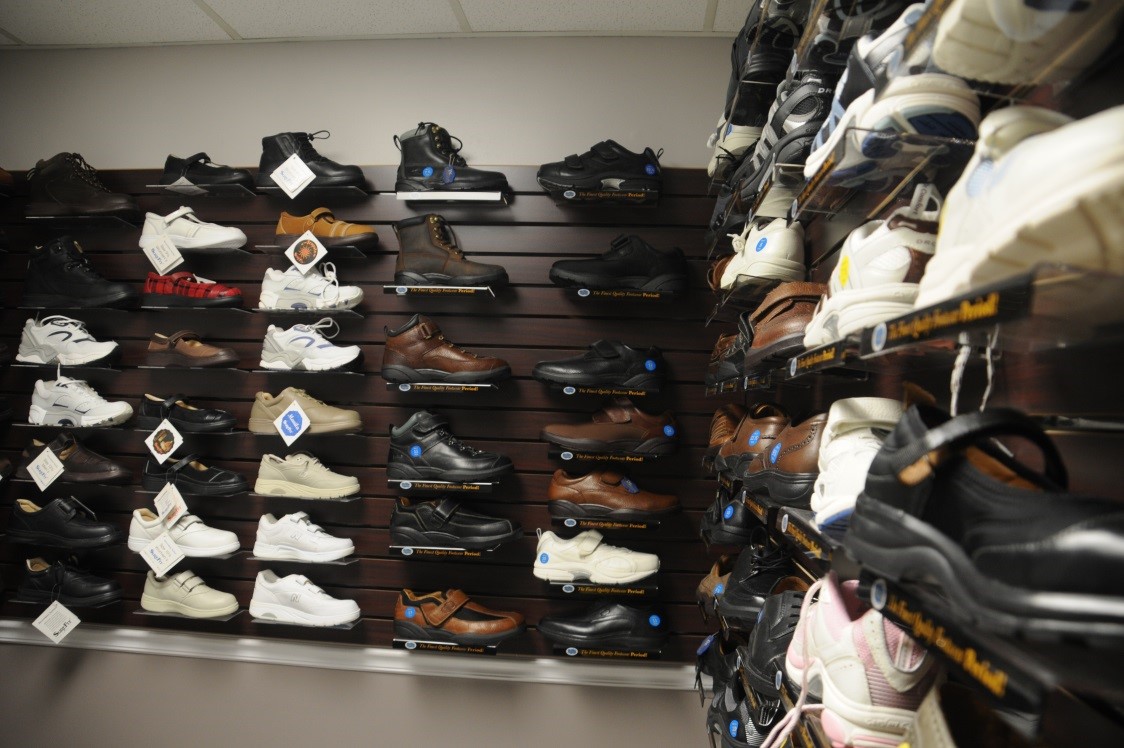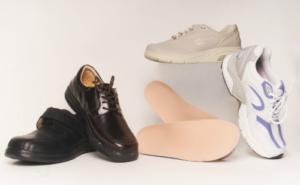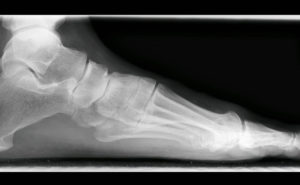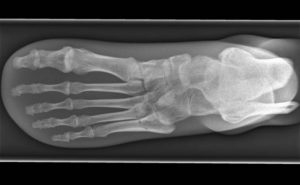The custom-fabricated shoes and orthotics used in pedorthics help to alleviate foot pain and stress in diabetic patients while preventing the formation of ulcers.
Of the 9.3% of adults in the United States that have diabetes, it’s estimated that 2.5% also experience ulcerations of their lower extremities, particularly on their feet. It is not uncommon for ulcerations on your feet to become infected, as our feet are routinely exposed to a wide range of bacteria in our everyday environment. Infection often leads to further health complications, and puts the patient at increased risk of developing serious comorbidities, partial foot amputations, and even complete limb loss. For this reason, proper diabetic footwear, or pedorthic treatment, is critical in diabetic foot ulcer treatment. Specialized footwear is easy to implement and is geared toward keeping patients strong, active, and mobile while also helping to heal and prevent further foot ulcer formation.
Diabetic Foot Ulcer Prevention
Diabetes is a leading public health concern in this country with as many as 1.7 million new people diagnosed each year. This leads to rising healthcare costs year after year primarily due to complications from the condition. Because diabetic patients are more likely to have foot problems develop in conjunction with neuropathy, treatment of the foot, ankle, and lower extremities should become a priority following diagnosis. Amputation of lower extremities from foot ulcers is a real threat, making proper diabetic foot ulcer prevention and treatment a key to successfully avoiding and resolving this condition.
Diabetic Foot Ulcer Treatment with Pedorthics
While a patient should seek immediate medical attention when signs and symptoms of a foot ulcer become present, the best treatment for foot ulcers starts with prevention. Diabetic patients can prevent foot ulcers from developing in the first place by talking with their doctor or physical therapist about acquiring preventative prescription footwear. Pedorthic treatment is designed to keep patients mobile using supportive footwear, thereby alleviating pressure, stress, and strain to prevent ulcers from forming on the lower extremities.
The prescription shoes or foot orthotics used in this form of diabetic foot ulcer treatment are custom fitted for each patient by a pedorthist and fabricated to address doctor’s orders. This is done by taking a foot impression and recording detailed measurements and observations of each part of a patient’s foot. From that information, a custom-molded or pre-fabricated soft, cushioned device to wear inside an extra depth shoe may be fabricated to fit the precise anatomy of the patient’s foot.
Once the shoe or foot orthotic is delivered to the patient in its final form, it is essential to receive regular checkups to ensure that it is achieving the desired outcomes outlined by your physician and pedorthist. It is also extremely important for the patient to abide by all precautionary measures regarding diabetic footwear inspections after receiving their device, which will be detailed by your pedorthist at time of delivery. In order to promote circulation and allow diabetic patients to complete physical tasks comfortably, pedorthic treatment plans may include one or more of the following interventions:
- Extra depth shoes
- Custom foot orthotics
- Biomechanical shoe modifications
- Rocker sole modifications
- Custom molded shoes
The results overwhelmingly favor this method of treatment, as it is estimated that proper pedorthic treatment can reduce the outcome of lower extremity amputation by up to 80%. Pedorthic treatment has proven to be successful in supporting an overall treatment plan for people with diabetes, both in preventing foot ulcers from forming and in helping ulcers to heal for long-term foot health.
By reducing the risk of dire health consequences, pedorthic treatment helps people continue to live normal, fulfilling lives following a diabetes diagnosis. For more information on pedorthic diabetic foot ulcer treatment, contact Horton’s Orthotics and Prosthetics today or call 501-683-8889.
[maxbutton id=”10″]




Leave a Reply